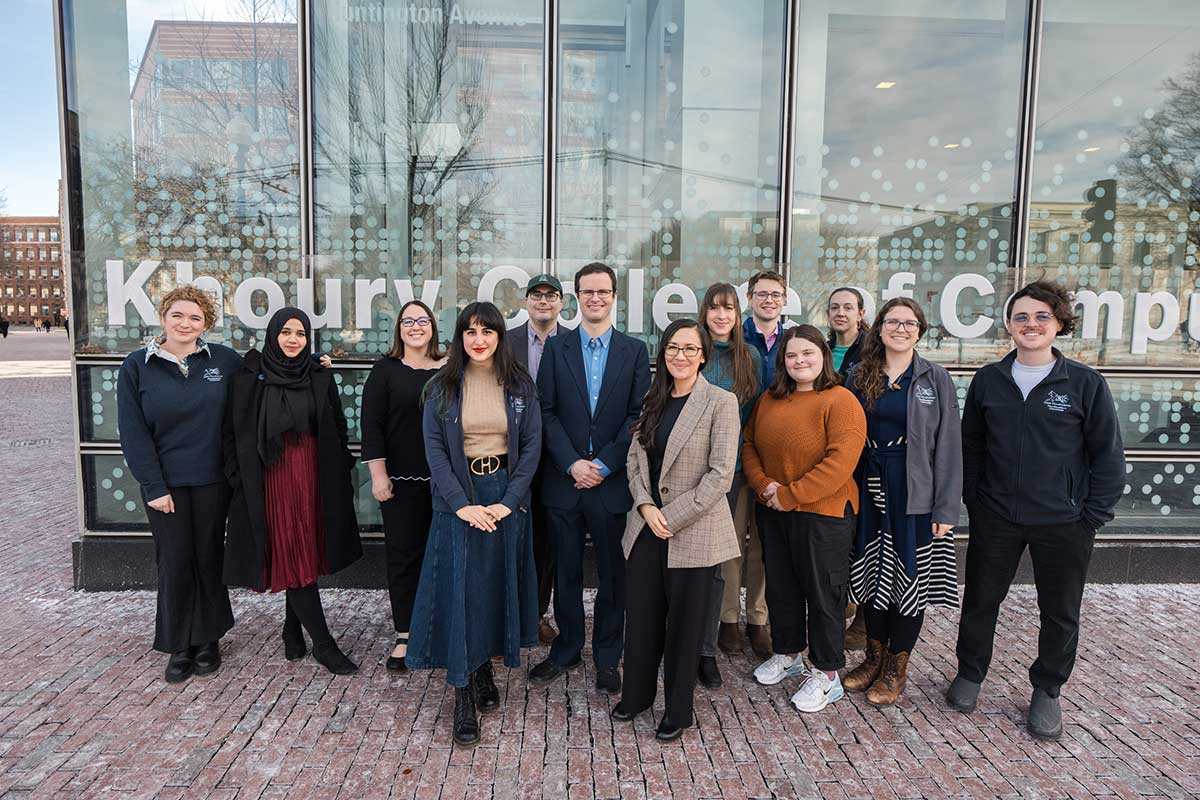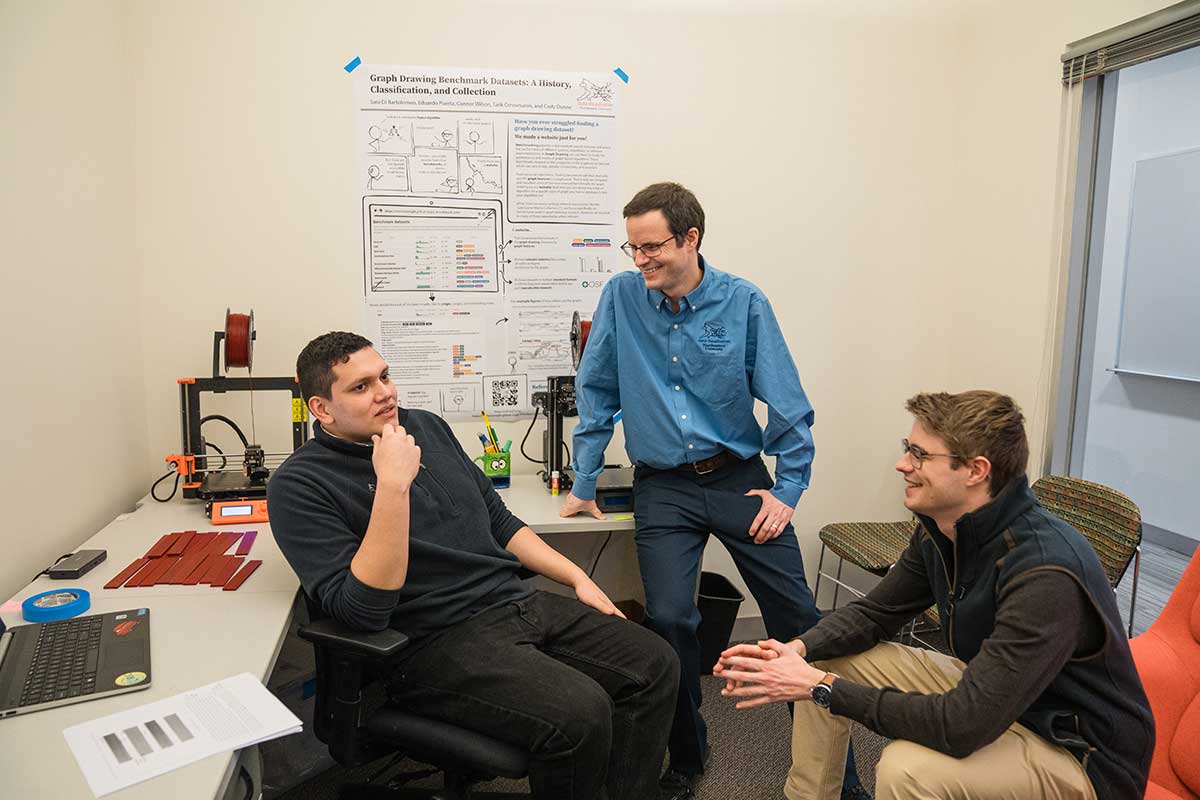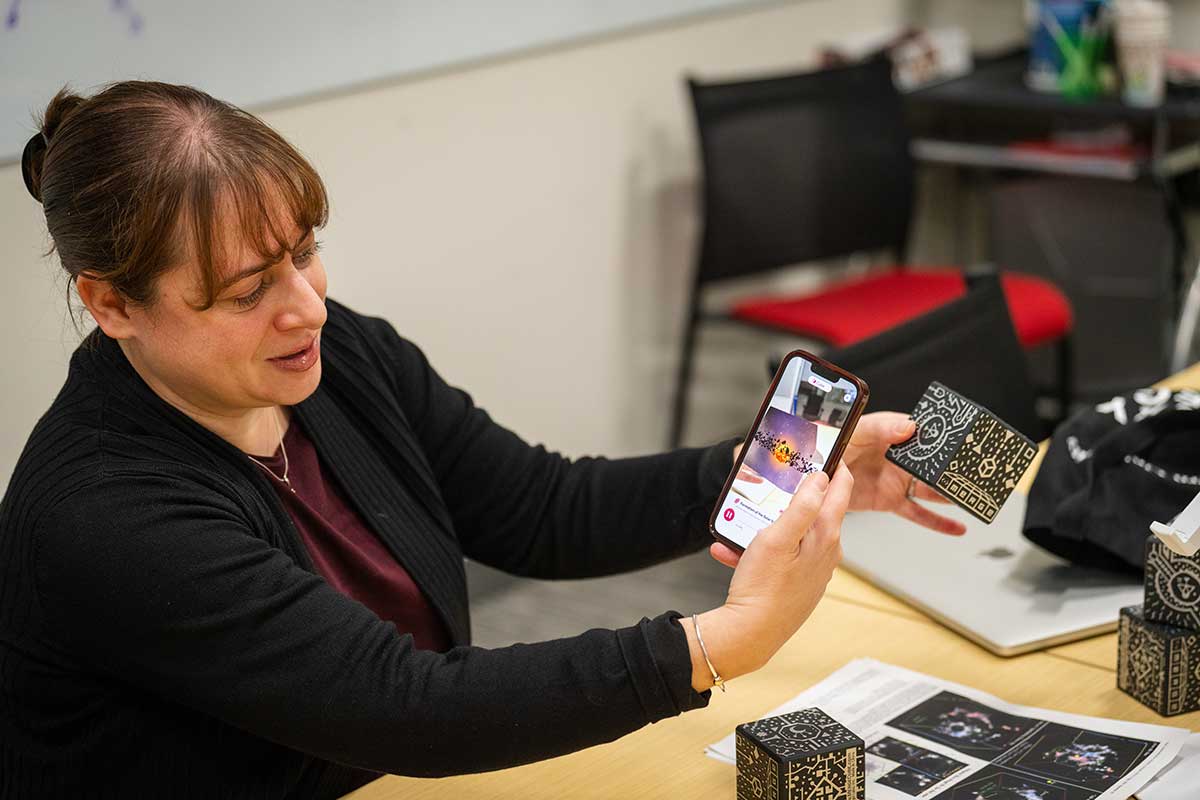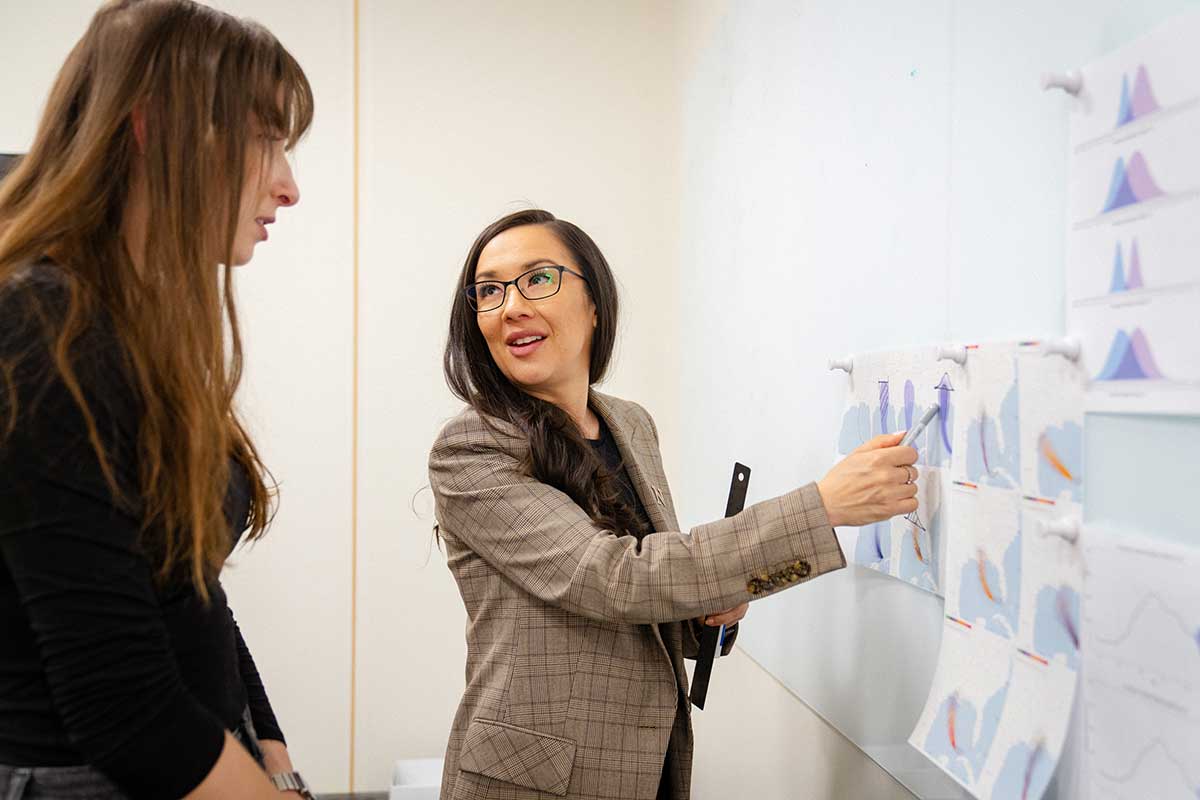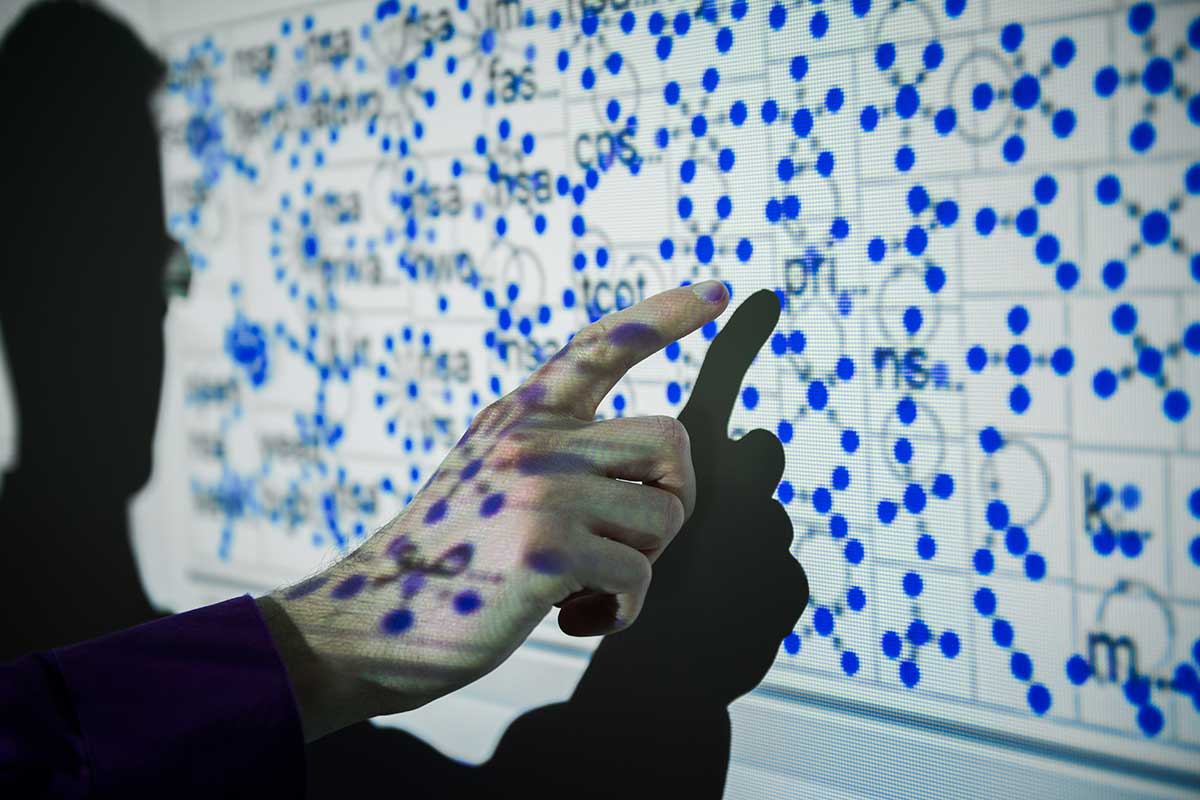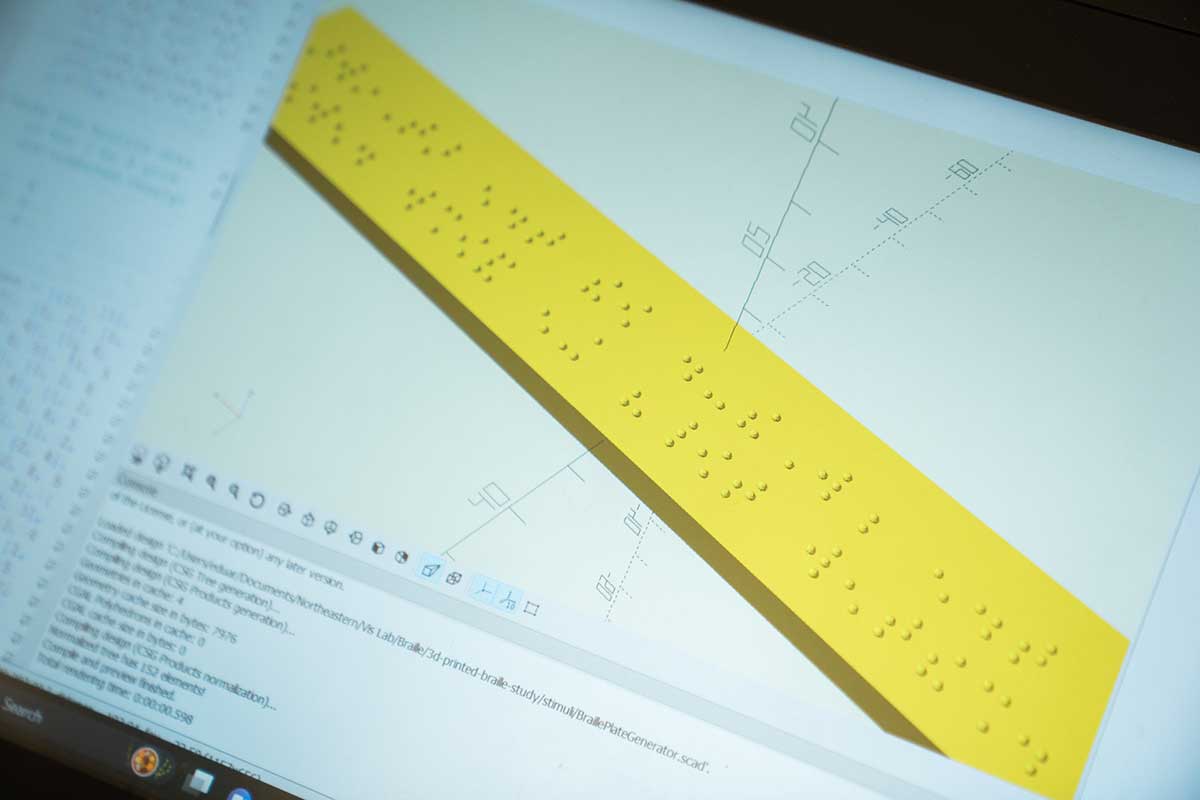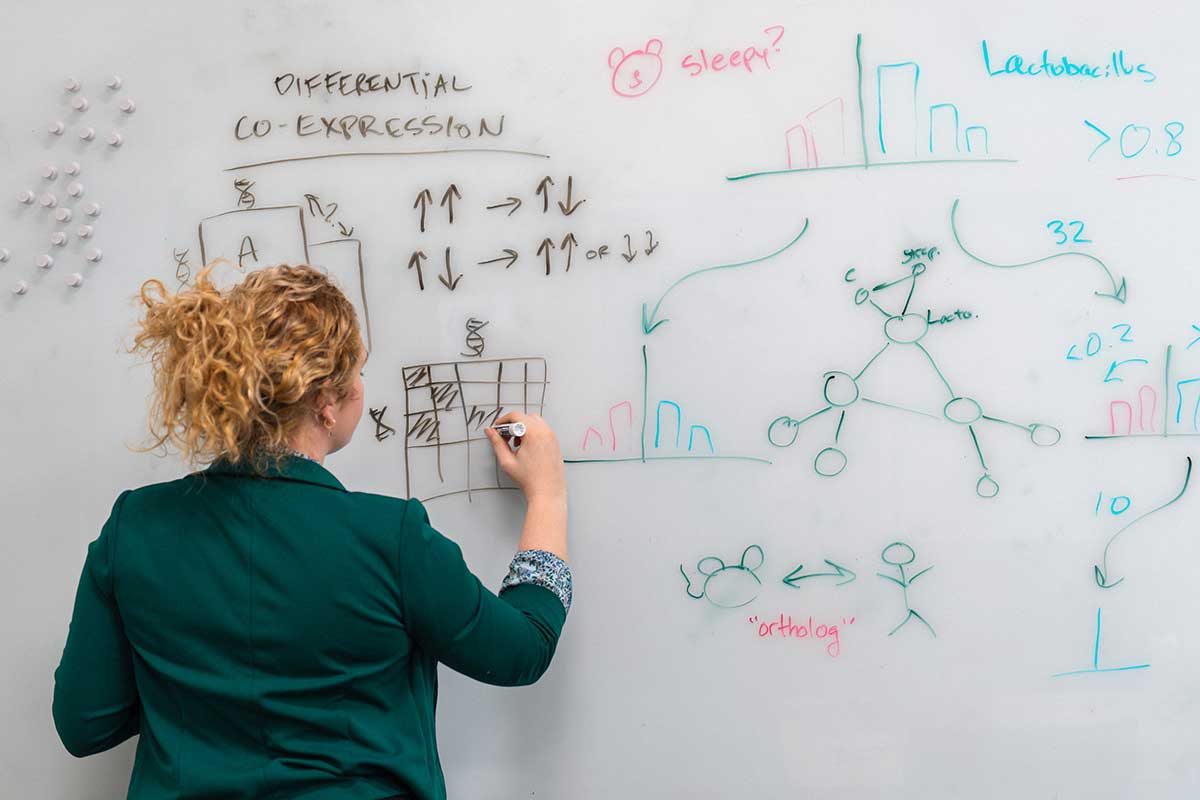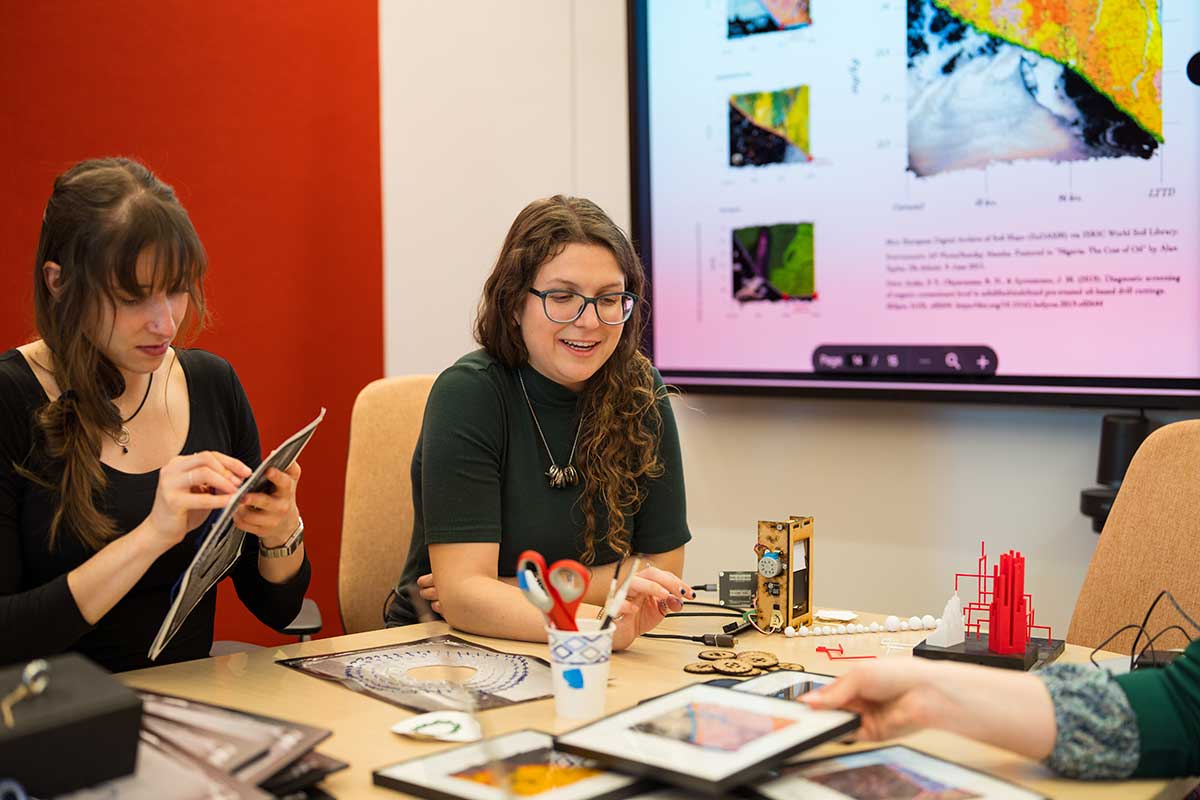
Data Visualization at Khoury College of Computer Sciences
Building the tools that help us see and understand the world
How do we make sense of the onslaught of data we face every day? From tracking a daily run, to peering inside a virus, we increasingly depend on models and animations. The study of data visualization investigates how to connect the most complicated capacity of humans — our ability to take in visual information — with the streams of data that now define our world. How can we identify patterns, find gaps, understand trends — all within a fraction of a second? And how do we create images and animations that we increasingly depend on for work, daily life, health, and safety?
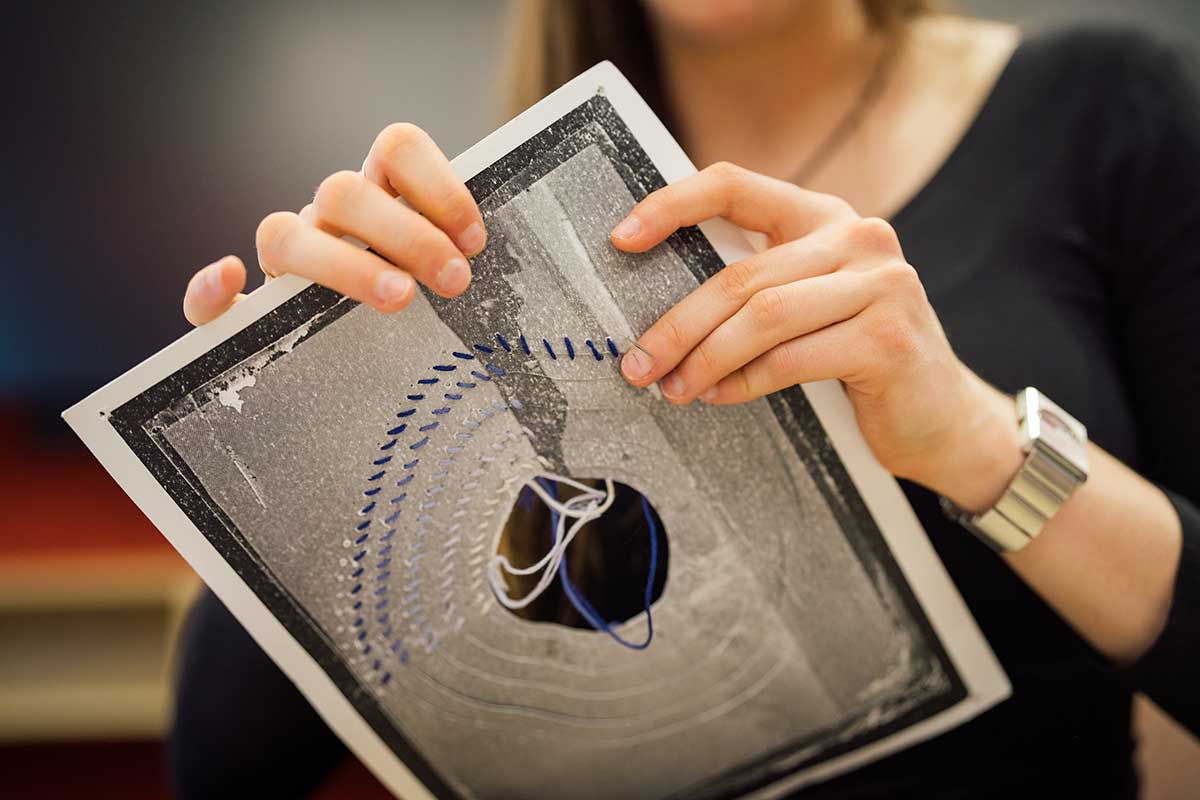
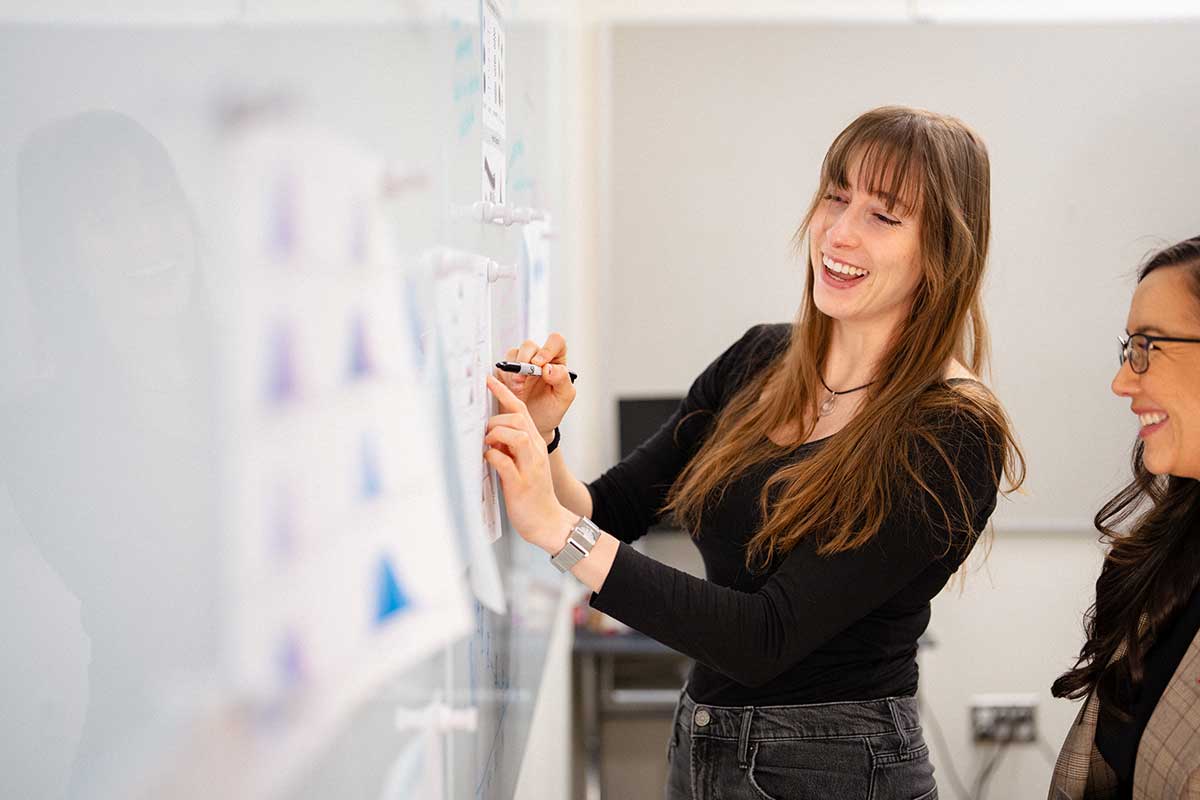
Pushing frontiers and shaping the future
It’s a challenge that Khoury College is tackling head-on through an interdisciplinary team of faculty — the largest such group in the US — bringing expertise from computer science, psychology, art and design, human-computer interaction and other fields. Together, these researchers push the frontier on how humans interact with and interpret data from computers—doing the research that will shape the future of visualization.
Sample research areas
- Perception and cognition
- Data storytelling
- Analytic provenance
- Exploratory data analysis
- Coordinated views and interactions
- Tree/hierarchical data
- Network data
- Multidimensional data
- Geospatial data
- Uncertain, missing, erroneous data
- Temporal event sequences
- User interface design
- Interaction design
- Evaluation methodologies
Domains of interest
- Health care diagnostic and treatment decision support, including diabetes, neurology, ophthalmology
- Cybersecurity, including unmanned autonomous system analysis
- Astronomy and physics, including 3D visualization and multidimensional data
- Computer science, including work in databases, programming languages, and systems
- Digital humanities, including networks of concepts in humanities texts, text and timeline visualizations
- Epidemiology, including the spread of infectious disease
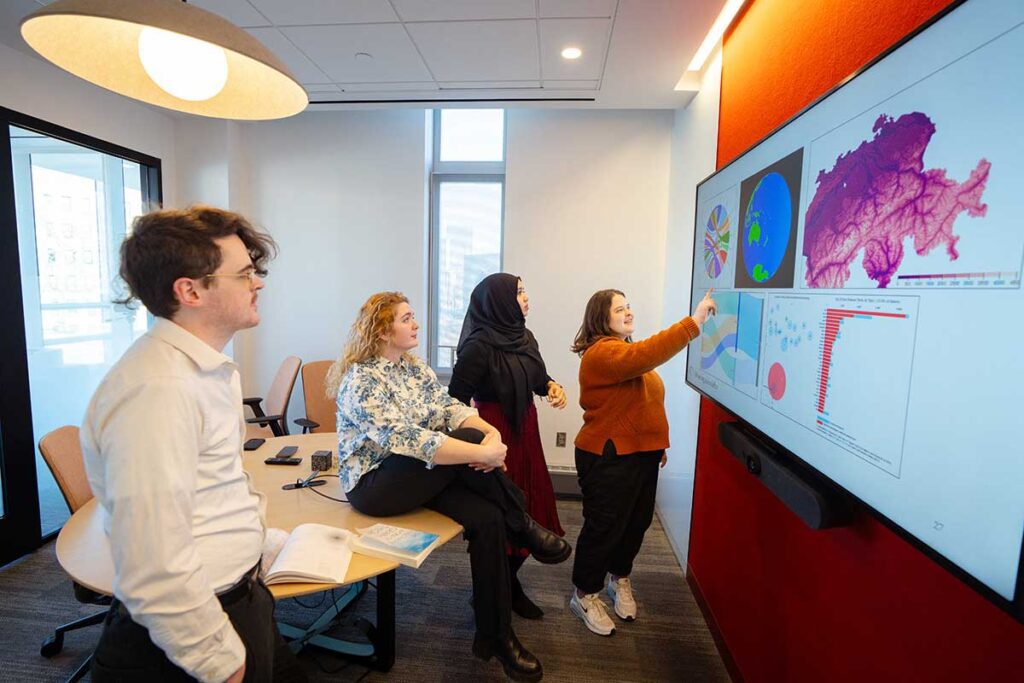
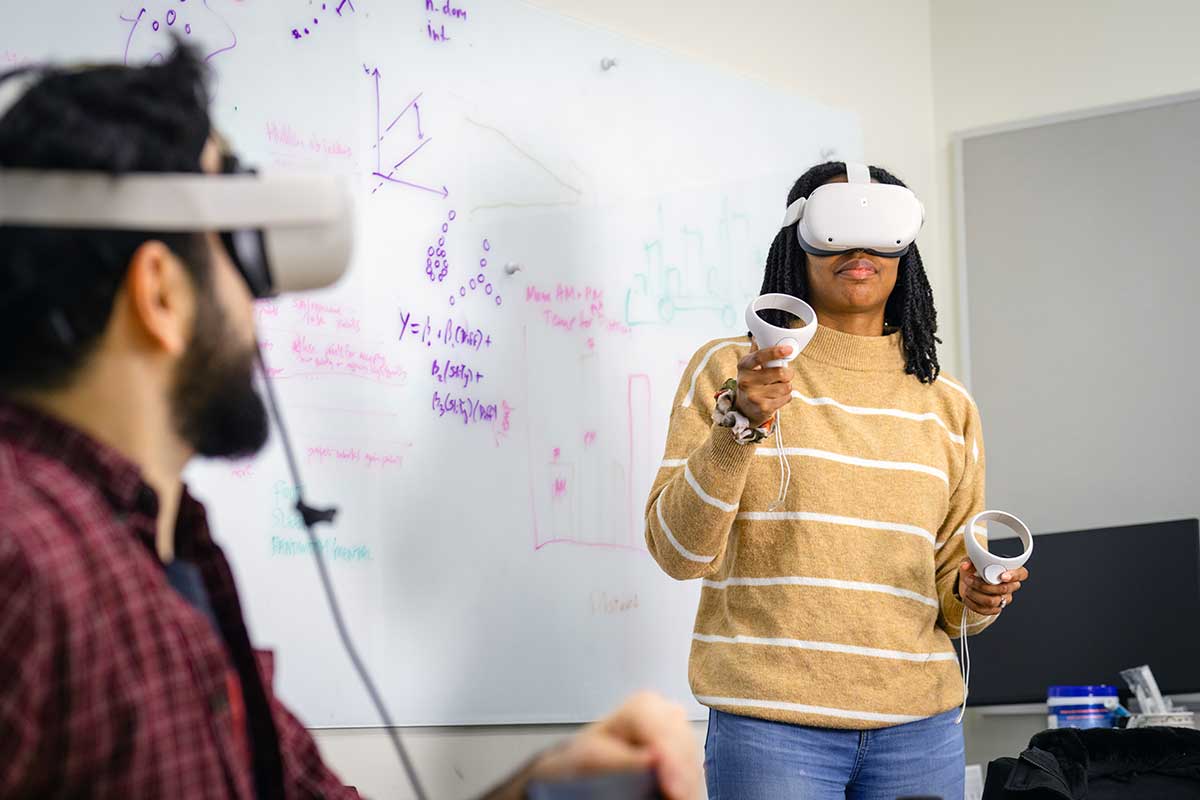
Current project highlights
Recent research publications
Barriers to Photosensitive Accessibility in Virtual Reality
Authors: Laura South, Amy Pavel, Caglar Yildirim, Michelle A. Borkin
Virtual reality (VR) is becoming prevalent, moving beyond its current niche use in gaming and simulations. But VR data visualizations present hurdles for people with photosensitivity who may not be able to use it safely. Khoury research identified the specific challenges that make VR less accessible for this group, enabling software developers to create a safer and more inclusive experience.
Struggles and Strategies in Understanding Information Visualizations
Authors: Maryam Rezaie, Melanie Tory, Sheelagh Carpendale
Khoury researchers are exploring the challenges people face when interpreting infographics. Through observation of actual users, the researchers identified specific design flaws in color use and labeling, and other factors that cause confusion. This research helps designers create visualizations to enable users to make sense of visualizations and understand the underlying data accurately.
State of the Art of Visual Analytics for eXplainable Deep Learning
Authors: B. La Rosa, G. Blasilli, R. Bourqui, D. Auber, G. Santucci, R. Capobianco, E. Bertini, R. Giot, M. Angelini
Deep learning (DL), a type of machine learning focusing on neural networks with multiple layers, is at the heart of advances in AI, but unfortunately is very difficult to understand – even by the developers who create the underlying software code. Typically DL works as a ‘black box’ in which input and outputs are visible, but the actual processes are unknown. Researchers at Khoury College are using Visual Analytics to reveal what’s going on with these processes and provide ways to explore and understand them.
Related labs and groups
Faculty members
-

Enrico Bertini
Enrico Bertini is an associate professor at Khoury College, jointly appointed with the College of Arts, Media and Design. Through his research and his podcast Data Stories, he works to make data visualization more understandable and useful for broad audiences.
-

Michelle Borkin
Michelle Borkin is an associate professor at Khoury College. She develops novel visualization techniques and tools to enable new data discoveries in fields ranging from cardiology to astronomy.
-

Michael Correll
Michael Correll is an associate research professor at Khoury College. His work in the worlds of data science and visualization aim to create reliable, inclusive, and informative visualizations for nonexpert audiences, and to help people make accurate decisions based on data.
-

Cody Dunne
Cody Dunne is an assistant professor at Khoury College. His work, which lies at the nexus of information visualization, network science, and human–computer interaction, strives to make data and visualizations easier to analyze and share.
-
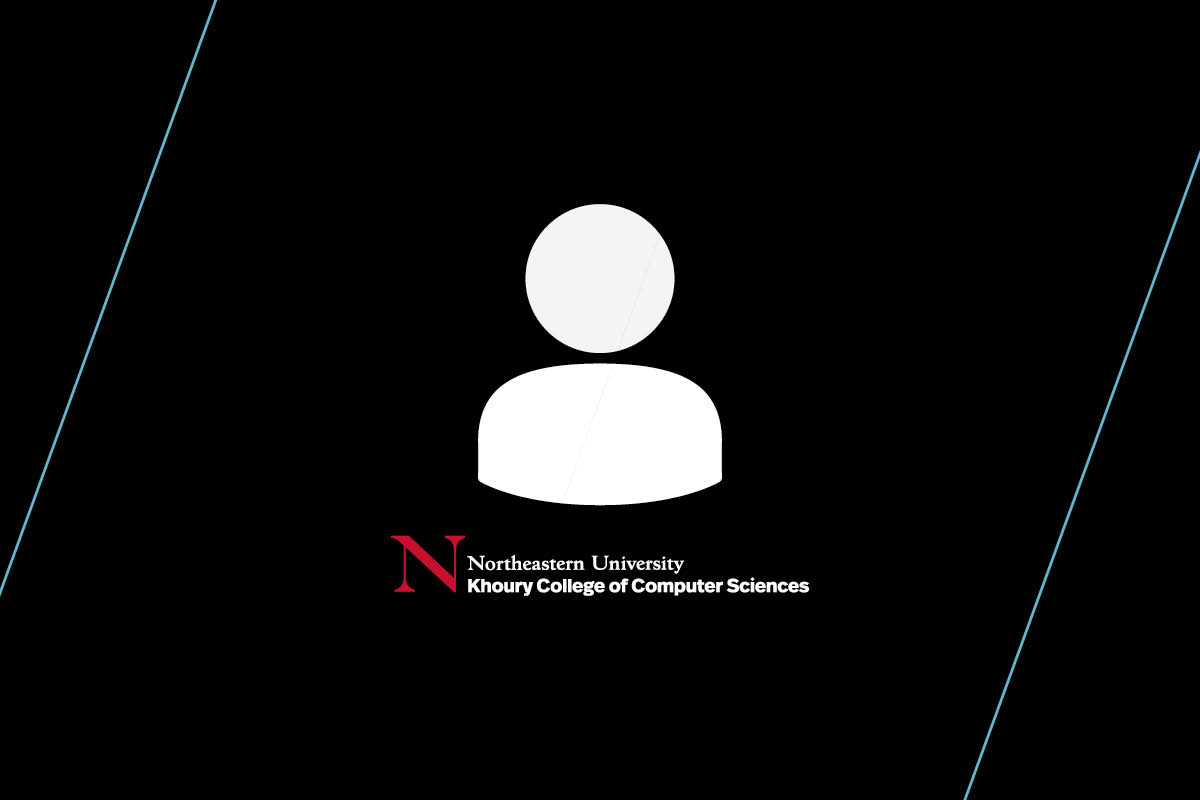
Cliff Forlines
Clifton Forlines is an associate research professor at Khoury College, affiliated with the Northeastern University Visualization Consortium (NUVis). His human-computer interaction research focuses on the relationship between input and visual data manipulation, to provide meaningful insights from data and support better decision-making.
-
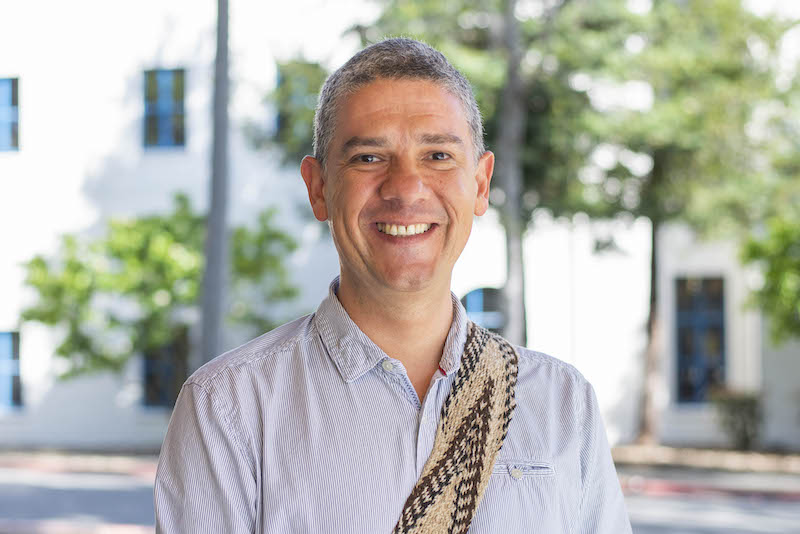
John Alexis Guerra Gomez
John Alexis Guerra Gomez is an associate teaching professor at Khoury College. Throughout his career in academia and industry, he has worked on data, user interface design, network visualization, and human–computer interaction projects, both in the US and in his native Colombia.
-
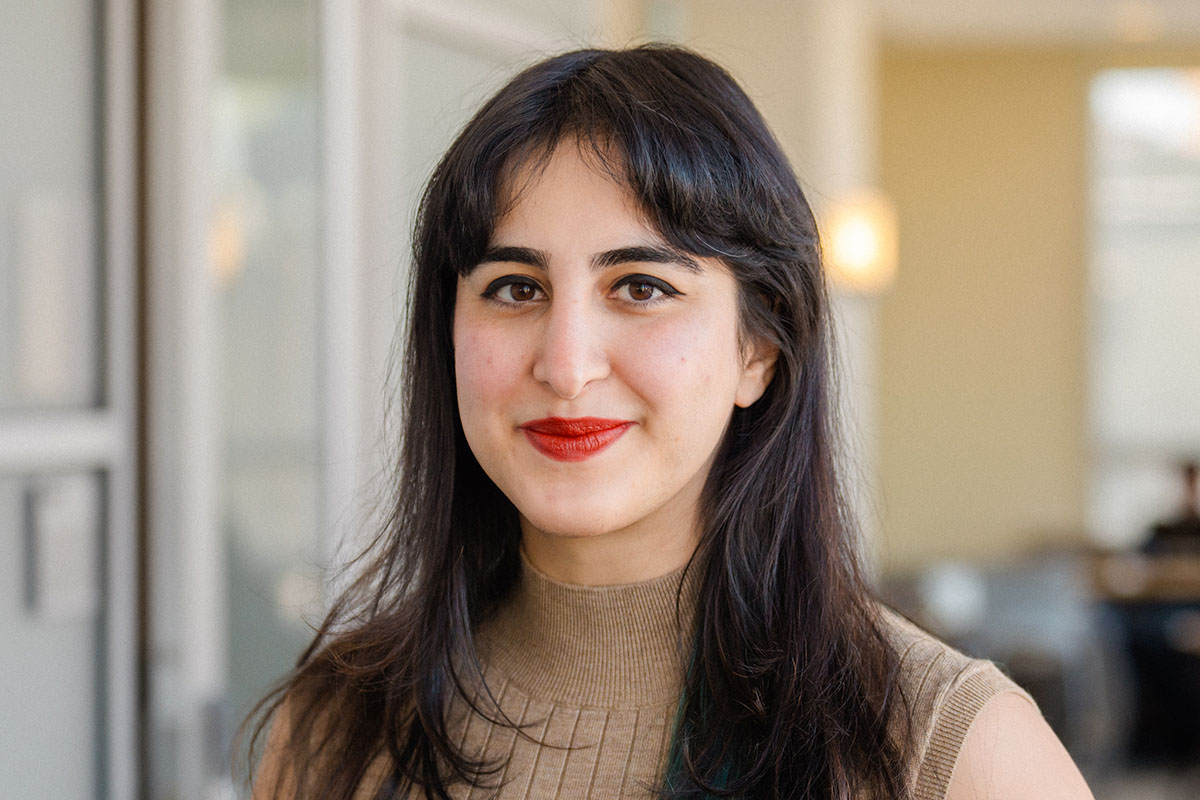
Mahsan Nourani
Mahsan Nourani is a research assistant professor at Khoury College. Her research explores how people of varying backgrounds understand and interact with AI-assisted decision-making systems and the impact those systems have on societies, with the goal of enabling human-centered and responsible AI.
-
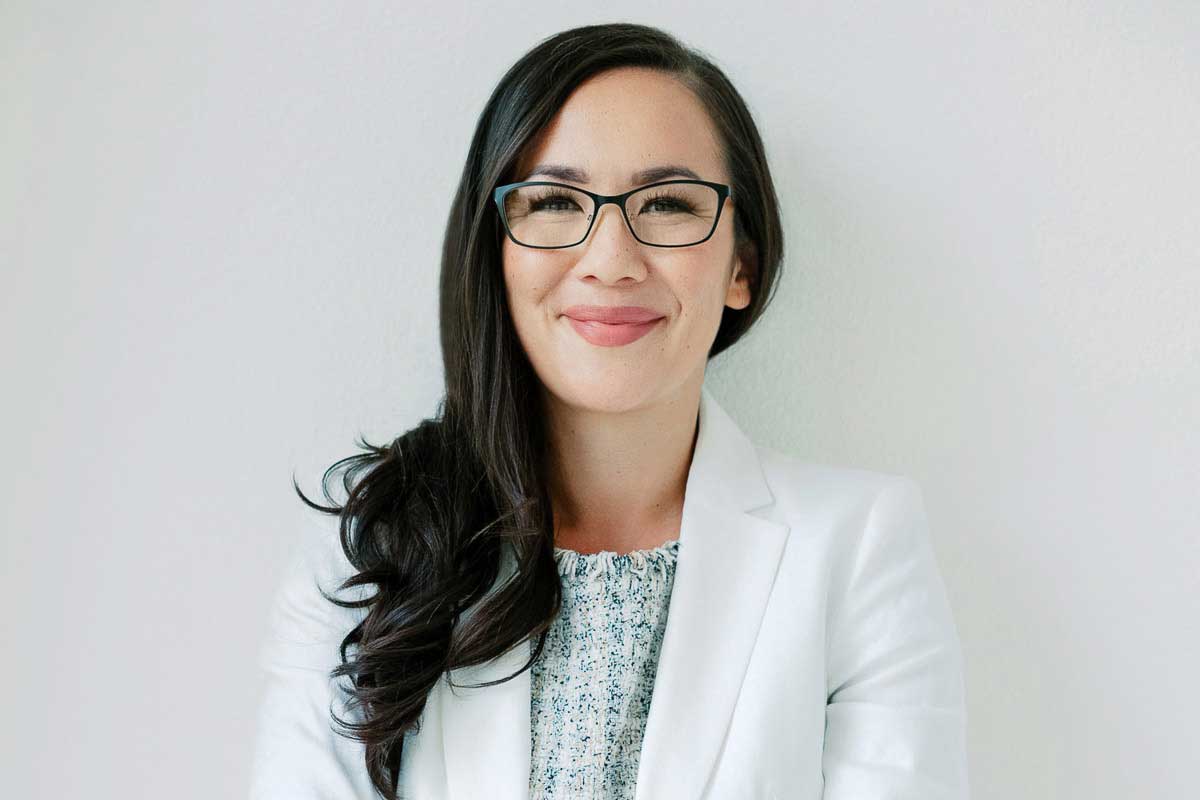
Lace Padilla
Lace Padilla is an assistant professor at Khoury College, jointly appointed with the College of Science. She combines cognitive, neural, and computer sciences to study how people process data visualizations and how those visualizations can communicate more accurately and effectively.
-

Melanie Tory
Melanie Tory is a professor of the practice and director of data visualization research at Khoury College. She previously worked as a research scientist for Tableau Software.
-

Dakuo Wang
Dakuo Wang is an associate professor at Khoury College. He is also an ACM Distinguished Speaker and gives talks around the world on his research into human-centered AI (HCAI) systems.
-

Caglar Yildirim
Caglar Yildirim is an associate teaching professor at Khoury College. His research combines human–computer interaction, mixed reality, data visualization, games, and applied machine learning.
